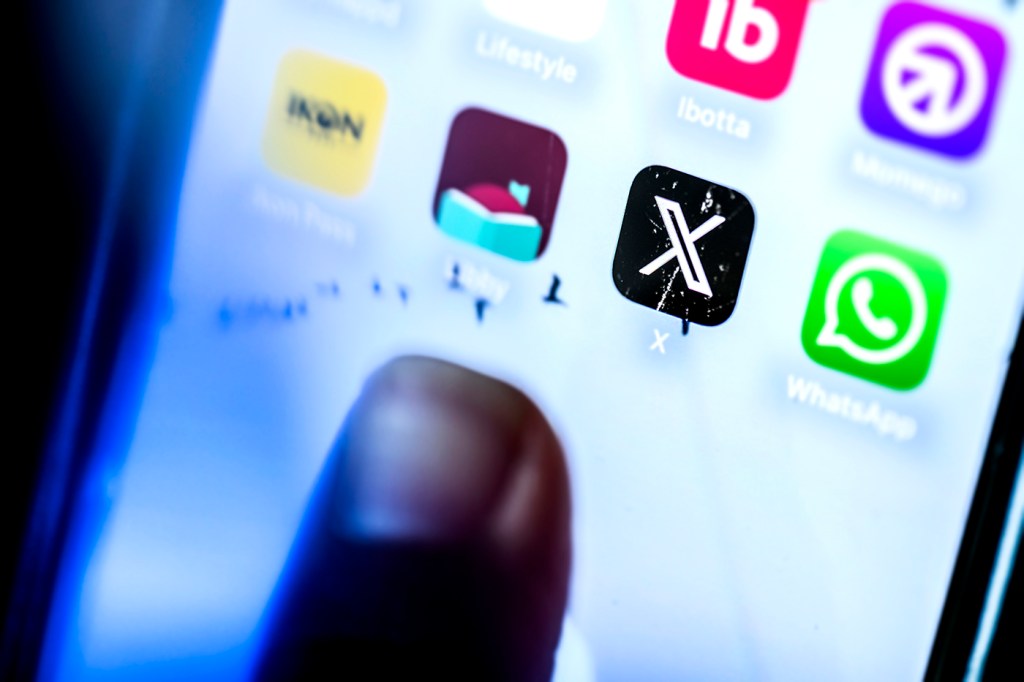Banned in Brazil: The world is moving toward greater regulation of social media, two Northeastern experts say

Brazil’s recent ban of X may seem antithetical to Americans’ notion of the First Amendment and the idea of the internet as a “marketplace of ideas” where the good ultimately overshadows the bad and the ugly.
But experts at Northeastern University say the vision of the internet as a libertarian, transnational free-speech zone where only the best ideas rise to the top is increasingly being questioned — even in the United States.
“Increasingly, we’re seeing an evolution. Courts are rethinking libertarian free speech paradigms — rethinking this very expansive understanding of free speech online,” says Elettra Bietti, assistant professor of law and computer science at Northeastern. “We have moved from a very libertarian, very hands-off approach to an increasing appetite for regulation in the digital economy.”
Claudia Haupt, a professor of law and political science at Northeastern University, concurs.
“I think after January 6, you could see that there were some voices in the U.S. who said that maybe it’s a better idea to regulate speech on platforms more strictly,” says Haupt, who researches comparative online speech regulation.
She also notes rampant online dis- and misinformation during COVID.
“There is so much misinformation about things about science, and the truth isn’t what usually emerges,” Haupt says.
X, formerly known as Twitter, has been suspended in Brazil since early Saturday, after the U.S.-based company failed to appoint a new legal representative in the country before a court-imposed deadline.
On Monday, the Brazilian Supreme Court voted unanimously to uphold the ban.
It was the latest escalation in a dispute between X’s owner, Elon Musk, and Brazilian Supreme Court Justice Alexandre de Moraes. In April, the justice ordered the suspension of dozens of accounts for allegedly spreading disinformation. Musk ignored the orders, Moraes threatened arrests, and Musk closed X’s Brazilian office in response.
The dispute, at least publicly, revolves around issues of free speech.
Featured Posts
“Free speech is the bedrock of democracy and an unelected pseudo-judge in Brazil is destroying it for political purposes,” Musk said Friday.
Brazilian Supreme Court Justice Flávio Dino, however, argued that “freedom of expression is closely linked to a duty of responsibility.”
“The first can’t exist without the second, and vice versa,” Dino added.
Bietti notes there has always been a push and pull between governments and individuals concerning speech.
“We want free speech, we want to enable activists and bottom-up change to be channeled through social media,” Bietti says.
She notes the impact of what was then Twitter on events such as the Arab Spring protests — and governments’ subsequent crackdown on Twitter after the protests ended.
“But then there’s always pressure from the top, particularly from governments who want to try and limit that,” Bietti continues. “So, how do we strike a balance?”
Increasingly, finding that balance appears to be on the minds of lawmakers, justices and others.
Both Haupt and Bietti noted the European Union’s Digital Services Act, a recently passed measure whose “main goal is to prevent illegal and harmful activities online and the spread of disinformation,” according to the legislation.
Even U.S. Supreme Court Justice Samuel Alito has opened the door to regulation in the court’s unanimous NetChoice decision, where Alito notes that “the sky has not fallen” when social media companies comply with the DSA.
Meanwhile, there is bipartisan interest in the United States to regulate children’s access to social media and ban TikTok.
As for American social media companies, Haupt notes that they regularly change their community guidelines in order to comply with regulations in different countries.
“All platforms have community standards, and there’s no First Amendment problems with that,” Haupt says. “It’s the cost of doing business across different countries.”
They also can choose not to comply with regulations, for better or for worse.
Bietti also notes that Musk’s libertarian, government-hands-off stance is a little disingenuous.
“Of course, a lot of his businesses benefit from government investments,” Bietti notes. “So, the idea that the government should just step out of the picture and not intervene at all in the regulation of what types of technologies we have and what harms might be caused by these technologies is totally absurd. And he fully knows that.”
In the end, it is key to remind Americans that other countries have not only different standards — but different laws — regarding speech.
“The social media platforms basically have to comply with the regulatory frameworks wherever they do business,” Haupt says. “The baseline for assessing whether speech is lawful or not is not United States law, but local law in Brazil.”
“The U.S. is actually an outlier in the way it treats speech,” Haupt continues.











